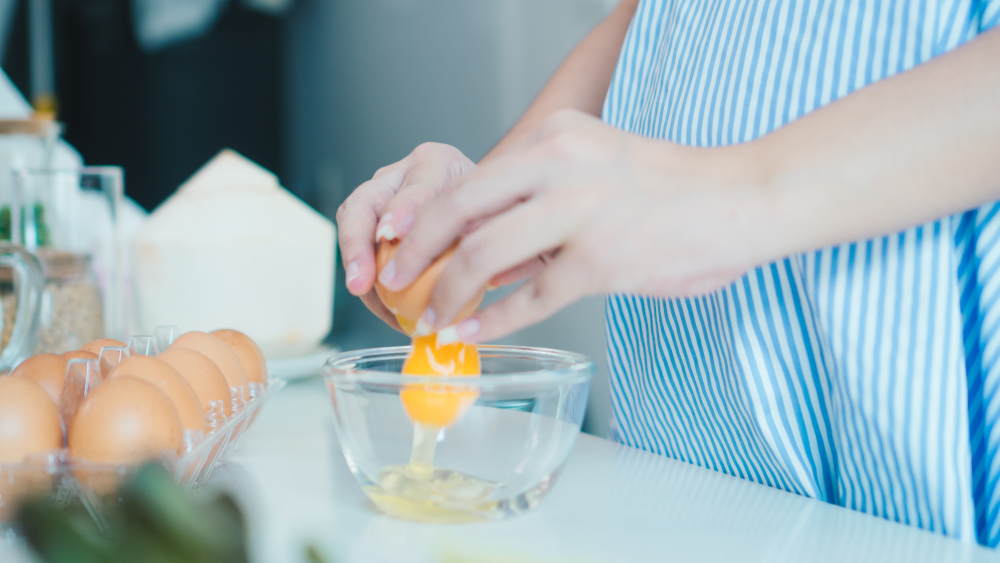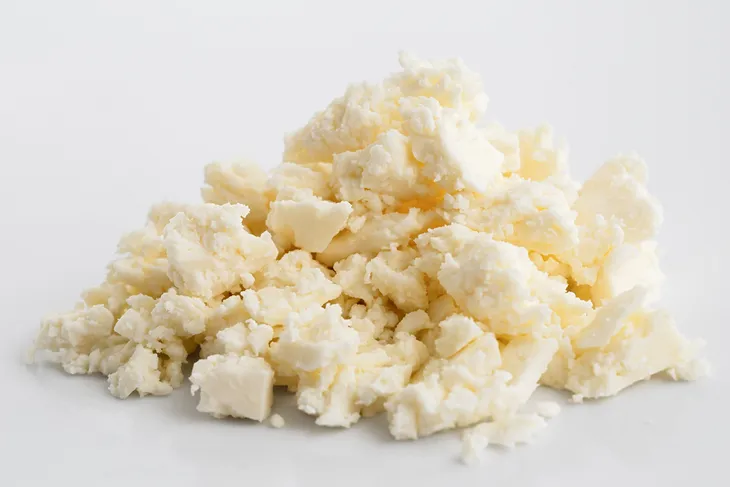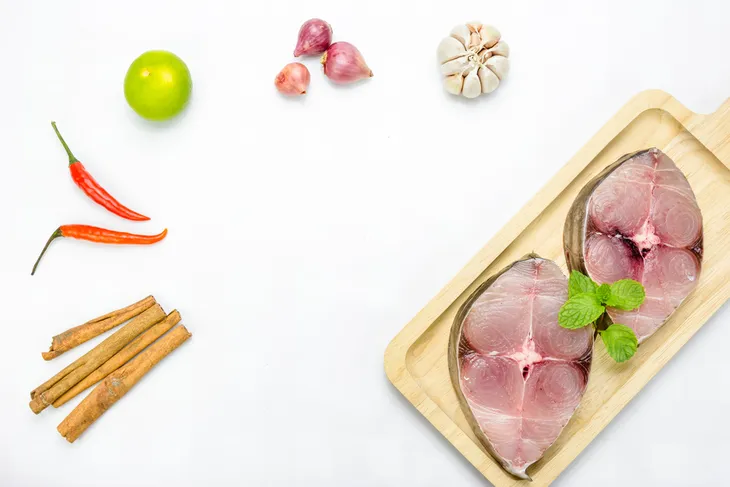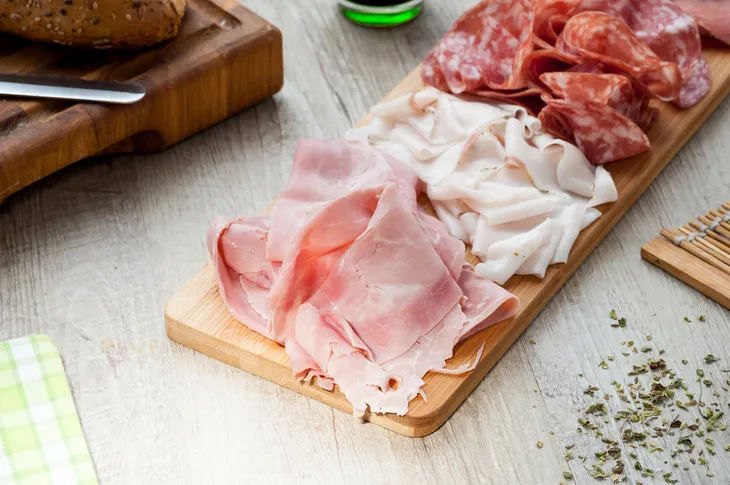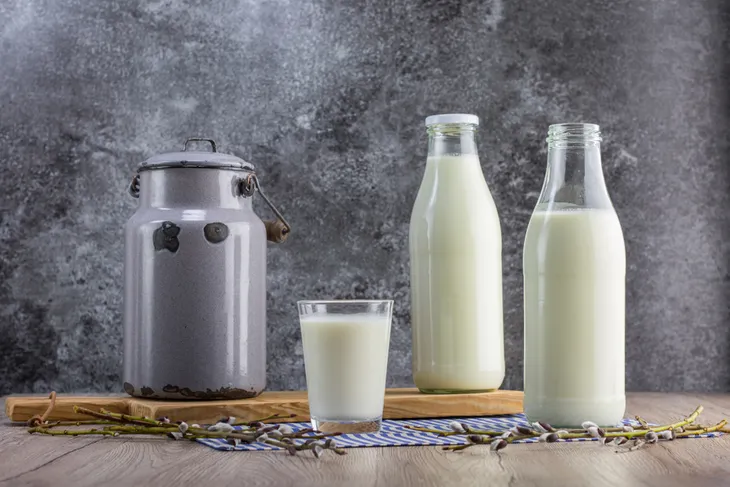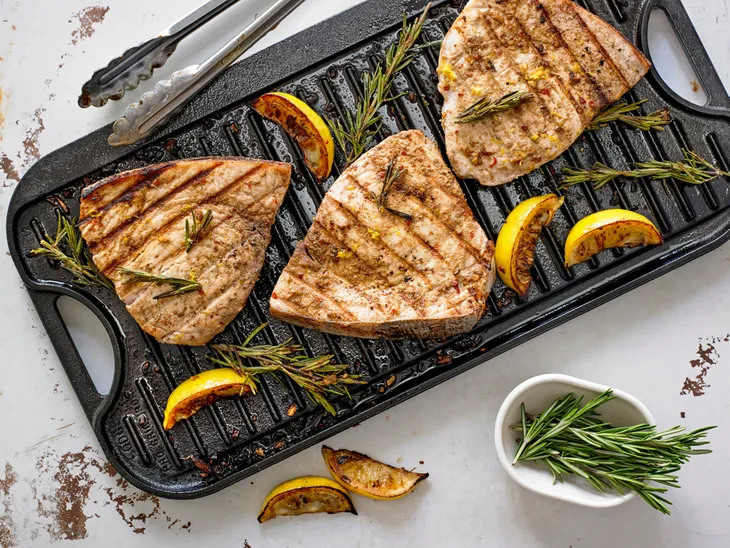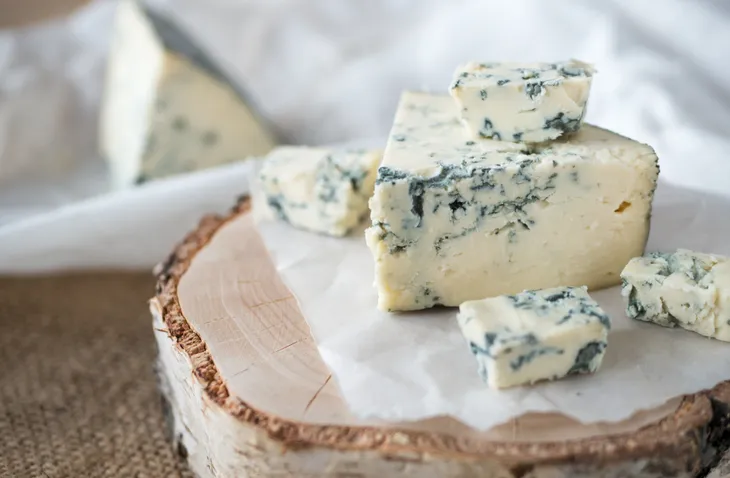Every expectant mom knows there are certain foods that should be avoided during pregnancy to protect the health of their unborn baby. The list, however, has become so long and so controversial that it’s difficult to know which foods/drinks actually pose a health risk and which ones are actually safe for consumption.
When it comes to pregnancy, there are certain foods that should most definitely be avoided. Foods that are too high in mercury can pose a health risk to your baby, as can foods that are known to cause foodborne illnesses such as Listeriosis and Salmonella poisoning.
If you’re worried about your diet, talk to your doctor to find out exactly what foods you can or cannot eat. In the meantime, you should definitely avoid eating the following 10 foods which have been proven to be the most dangerous when it comes to pregnancy.
If you don’t cut anything else out of your diet during your pregnancy, make sure you remove the following foods:
Feta Cheese
Feta is a popular form of cheese, used in many salads and pastas and adored by food connoisseurs all over the world. If you’re a cheese lover who craves it even more during pregnancy, it’s important to know what cheese is safe. Unfortunately, this type of cheese (along with other soft, unpasteurized cheese which we talk about later in this article) has been linked to foodborne illness.
The most popular foodborne illness linked with this particular type of cheese is Listeriosis. In general, if you aren’t pregnant, consuming foods with Listeria would cause flu-like symptoms and not have any lasting effect or damage to your health. But if you are pregnant, avoid any cheeses that have “unpasteurized” on the label and opt for safer choices like mozzarella cheese instead. When infected with Listeriosis, there’s risk of a miscarriage, premature labor, and severe illness. Interestingly, some meats are also a risk to pregnant women because they may contain listeria. Keep reading to learn about these meats.
King Mackerel
King mackerel may be a healthy source of omega-3 fatty acids for average individuals but the high level of mercury in this particular fish (and a few others on our list) can be potentially dangerous to your unborn baby. Too much mercury can damage your baby’s developing nervous system. The risks of consuming king mackerel fish while pregnant far outweigh the benefits, especially when there are a lot of other fish you can eat instead. For those who really like mackerel, there are some other types of mackerel that are okay in moderation, according to the American Pregnancy Association.
Ensure you get the right amount of omega-3 fatty acids by eating healthy, safer types of fish like salmon, tilapia and shrimp and staying within the recommended guidelines for mercury consumption (as noted in slide 9 of this article). To be safe, skip raw fish when you order sushi – there are tons of rolls and other dishes available to you that are much safer to eat and don’t pose a risk to your unborn baby.
Caffeinated Coffee/Tea/Pop
The amount of caffeine a pregnant woman can safely consume has been widely argued by many experts. Caffeine can cross the placenta and affect your baby’s heart rate. Common sources of caffeine include, but are not limited to, coffee, tea and pop. Many doctors recommend that pregnant women consume no more than 200-milligrams of caffeine per day.
On average, an 8-ounce cup of coffee contains approximately 95-milligrams of caffeine, an 8-ounce cup of tea contains about 47-milligrams and a 12-ounce pop contains about 29-milligrams. If you’re unsure about how much caffeine is safe, it’s best to avoid it altogether until you talk to your doctor. Some doctors don’t think it’s a big deal to have caffeine in moderation while others advocate that caffeinated drinks should be avoided completely. So get the information you need from your doctor to make an informed decision about caffeine during your pregnancy.
Brie Cheese
Brie cheese, similar to feta cheese, is commonly unpasteurized and can pose potential health risks to you and your unborn baby. These types of soft cheeses are commonly linked to foodborne illnesses such as Listeriosis. Listeriosis can be incredibly dangerous for pregnant women. Even a mild form of this infection can lead to miscarriage, stillbirth or severe illness in newborn babies. Always check the label and avoid any foods that indicate that they are “unpasteurized.” Some doctors say that if the unpasteurized cheese is cooked, it is okay to eat, but you shouldn’t take this chance until you’ve spoken with your doctor.
Unpasteurized means that the milk the cheese is made with is raw, which is what gives it the potential to contain the disease, Listeria. Cheeses that use pasteurized milk have a very low chance of carrying the disease. There are a surprising amount of cheeses that are commonly thought to be pasteurized but aren’t, so make sure the product label explicitly says it’s pasteurized to cover your bases. If you aren’t sure, don’t risk it.
Deli Meats
Deli meats are a staple lunch item in households across North America. They’re convenient and cheap, make filling sandwiches, and children generally like them, but their safety related to pregnant women has been a controversial topic for years. In general, processed deli meats should be avoided during pregnancy. These meats have been linked to causing Listeriosis – a dangerous foodborne illness that can cause miscarriage, severe illness and even stillbirths. The average person would feel mild flu-like symptoms but the disease is much more severe for women who are pregnant.
Listeria is a rare disease, but pregnant women are more susceptible to getting the virus, and unborn, developing babies are at a higher risk of developing complications from the disease. Foods in this category include any processed deli meats (ham, turkey, chicken, salami etc) as well as uncooked hot dogs and bologna. Either cook these meats until they are steaming hot – or avoid them altogether.
Unpasteurized Milk
Much like unpasteurized cheeses (like Brie and Feta, mentioned earlier in this article) unpasteurized milk can pose huge health risks to your unborn baby. Don’t drink raw milk (also known as unpasteurized milk), including sheep’s milk or goat’s milk (that includes goat cheese as well). Unpasteurized milk, along with uncooked and unwashed food, is a vehicle for carrying pathogens that can make you extremely sick. Raw milk is at a significantly higher risk of being contaminated with Listeria compared to pasteurized milk, which can result in the disease Listeriosis.
As previously explained, unpasteurized milk has been known to cause foodborne illnesses such as Listeriosis. Listeriosis is a dangerous infection that can lead to miscarriage, severe illness and even stillbirth. With pregnant women being at a higher risk of getting Listeriosis and unborn babies at risk of developing serious complications from it, a lot of doctors advise their pregnant patients to avoid unpasteurized milk during their whole term.
Uncooked Eggs
Many people toss a few uncooked eggs into their morning smoothies to give it a protein boost but pregnant women should avoid eating uncooked eggs altogether. In their uncooked form, eggs pose a huge risk for salmonella poisoning. While an unborn baby can’t have salmonella poisoning (the pregnant mother can’t pass it on to the baby), there are several side effects that can impact the baby’s health and labor. Some of these include causing early labor and dehydration, since salmonella poisoning leads to vomiting and diarrhea.
Cooked eggs are a good source of protein, vitamins and minerals, so if you want to eat eggs throughout your pregnancy, just make sure that they’re cooked. When cooking eggs, the egg whites and egg yolk should be solid. Some products to be wary of are ones made with raw or partially cooked eggs such as some caesar salad dressings, raw cookie dough and eggnog. It’s best to avoid these foods as much as possible during your pregnancy in order to ensure the health of your unborn baby.
Swordfish
It can be difficult to learn and follow all of the foods that should be avoided when you’re pregnant, but many foods can result in serious complications for both the mother and unborn baby. What fish are safe to eat during pregnancy is probably the most confusing because of how many fish are considered unsafe. Combine that with the fact that a lot of fish are safe and can be a great source of nutrients, and it becomes difficult to keep track of the good vs bad.
Similar to King mackerel, shark and swordfish can potentially contain dangerous levels of mercury for pregnant women. As we noted earlier in the article, too much mercury can damage your baby’s developing nervous system. Instead, eat healthier fish like canned light tuna, salmon, shrimp or cod – but make sure you monitor your intake. FDA guidelines state that pregnant women can eat up to 12-ounces (340-grams) of mercury contaminated fish per week, which averages to about two seafood meals.
Blue Cheese
Another popular type of cheese that doesn’t make the cut of cheeses that are safe to eat when pregnant is blue cheese. Blue cheese (and other soft cheeses like Camembert and Mexican-style cheeses like queso fresco and queso blanco) can lead to foodborne illness. These products (like feta cheese and brie cheese) are generally made with unpasteurized milk which has often been linked to Listeriosis.
Listeriosis is a harmful and potentially fatal infection that can lead to miscarriage, severe illness and even stillbirths. Instead, opt for pasteurized cheeses like mozzarella and cottage cheese. Or, check the labels at your local grocer or market because it is possible to make blue cheese with pasteurized milk. You may luck out and find one, but make sure it blatantly says the cheese is pasteurized on the label – there’s no benefit to taking the risk when the potential harm to your unborn baby can be severe.
There are several other foods that pregnant women should avoid eating. These include, but are not limited to, certain types of sushi (which often contains raw fish), unwashed vegetables (always wash all of your vegetables thoroughly to reduce the risk of listeriosis) and alcohol.
Always consult with your doctor if you have questions during your pregnancy.
Like this article? You might like these as well:
